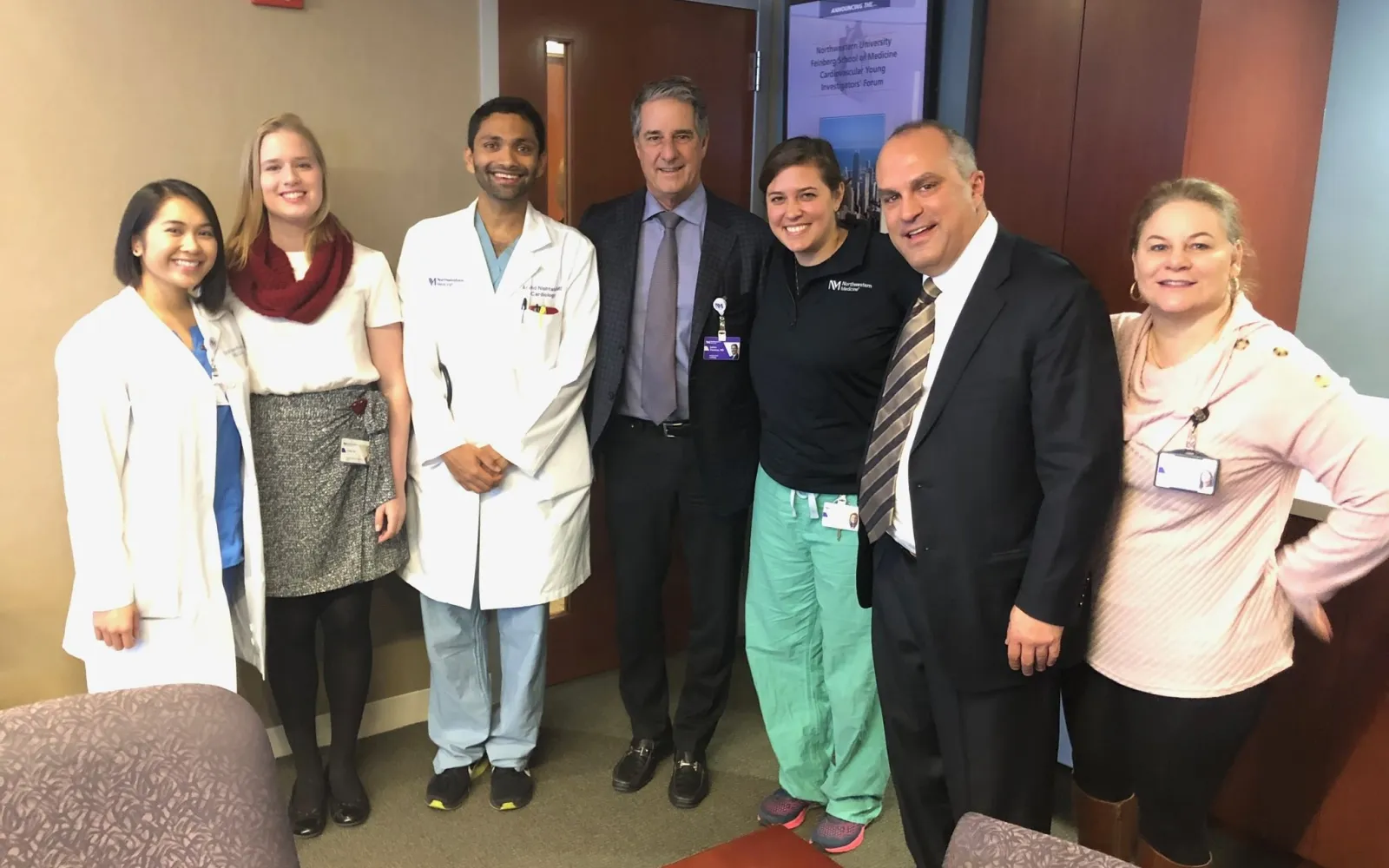

Caption Health
Helping non-specialists deliver echocardiograms in any setting
Ultrasound is a ubiquitous technology to diagnose patients. From prenatal care to your heart, lungs, and liver, ultrasound is the standard of care for understanding the function of many internal organs of the body. But it’s not easy to do. As a result, there are many clinical settings – including the emergency room, critical care settings, heart failure clinics, and others – for which a high quality ultrasound is needed but not used because there aren’t enough professionals who have the skills or experience to an ultrasound.
Today, the FDA granted De Novo FDA authorization for a new device under its Breakthrough Device program. That device, DCVC portfolio company Caption Health’s lead product, Caption Guidance, uses artificial intelligence (AI) to put the power of ultrasound in the hands of a wide range of healthcare professionals – even those without any prior ultrasound experience. A nurse simply places a probe on the patient’s chest, and the product gives turn-by-turn directions to the view requested by the physician. When a diagnostic-quality image has been captured, a meter lights up and the best image clip is automatically saved – without the user even having to press a button.
As few as 12 Breakthrough devices have been cleared or approved in the history of the program, and this is the first FDA clearance for an AI-guided medical imaging acquisition system. The clearance grants that Caption Guidance can be used on any hardware to capture ultrasound images of clinical diagnostic quality – even when used by non-physician health professionals like nurses or nurse practitioners. By giving this diagnostic power to medical professionals of all types, patients can receive care faster, creating better outcomes for everyone. This is reinforced by the rare public announcement from the FDA of Caption Guidance’s De Novo classification. Caption Guidance will be used for imaging of the heart, and the company plans to offer products to image other organs, as well.
The FDA deems a Breakthrough Device to be one that is novel, has no alternatives and deemed by the FDA to “provide more effective diagnosis for life-threatening or irreversibly debilitating diseases.” The FDA created an entirely new classification for Caption in this clearance via the De Novo regulatory pathway.
The company worked closely with the FDA to provide evidence for its claim that nurses could capture images of diagnostic quality. Eight nurses with no prior ultrasound experience in two different institutions (The Minneapolis Heart Institute and Northwestern University Medical Center in Chicago) performed 30 scans each for a total of 240. For each of four different clinical assessments, the FDA wanted to see that 80% of the images obtained by nurses using Caption were of diagnostic quality. Trained ultrasound technicians did those assessments in the same patients to ensure that the evaluating cardiologists were blinded as to which scans came from whom. Patients had a wide range of body mass indices (BMI) and comorbidities, so as to include a range of difficulty levels in obtaining a scan. In fact, some patients were so sick that they couldn’t stay awake for the few minutes it took to perform the procedure. Expert cardiologists, blinded as to which images came from whom, determined which scans were suitable for core clinical assessments frequently performed at the point of care.
The results were stunning. For three of the different clinical assessments, nurses using Caption obtained diagnostic-quality exams 98.8% of the time. For the fourth, nurses obtained a diagnostic-quality exams 92.5% of the time.
Celebrating the achievement of the Caption Health clinical study at Northwestern Medicine in Chicago. Pictured from left to right: Gretchen Nonog, RN, Cailin Whisler, RN, Arvind Nishtala, M.D., James Thomas, M.D., Lauren Schulze, RN, Armen Vidian (DCVC), and Anna Huskin, RN.
With expanded use to a wide range of healthcare professionals, the implications for patient care are enormous. For example, consider the case of an elderly woman with a prior heart condition who breaks her hip and has to have urgent surgery. Rather than the anesthesiologist having to delay the surgery by sending her to another location to get an ultrasound, an ultrasound could potentially be done right away, speeding her care and recovery. Of course, there are many other potential examples of applications for ultrasound that this FDA clearance makes much more accessible. New doors have been opened.
DCVC is inspired by the entrepreneurs at Caption Health. Too many people are resigned to compromise in healthcare in America. Resigned to cure disease – but leave unanswered the questions of how enough people can afford it. Resigned to have clinical evidence – but at the expense of flexibility in technological innovation. Compromise has led to people to discuss “fixing” healthcare because “transforming” it seems like a dream.
DCVC believes that Caption Health is setting a new example. Is AI alone the answer? Of course not. But working together with a team of AI experts, leading physicians from across the country, and regulators committed to approving safe and effective technologies, Caption is making medical technology at once accessible, credible, easy-to-use, and even fun.
Imagine that instead of dropping dead suddenly and without warning from heart disease or having a costly but avoidable medical procedure, we can plan for a healthy future by visiting our doctor at the age of 65 to have a scan of the heart – easily performed by that doctor or a nurse – to understand critical heart functions. And then we can use that assessment to understand changes in diet or identify treatments before becoming ill. Democratizing ultrasound with Caption Health is a first step toward making that a reality.

